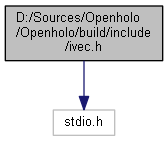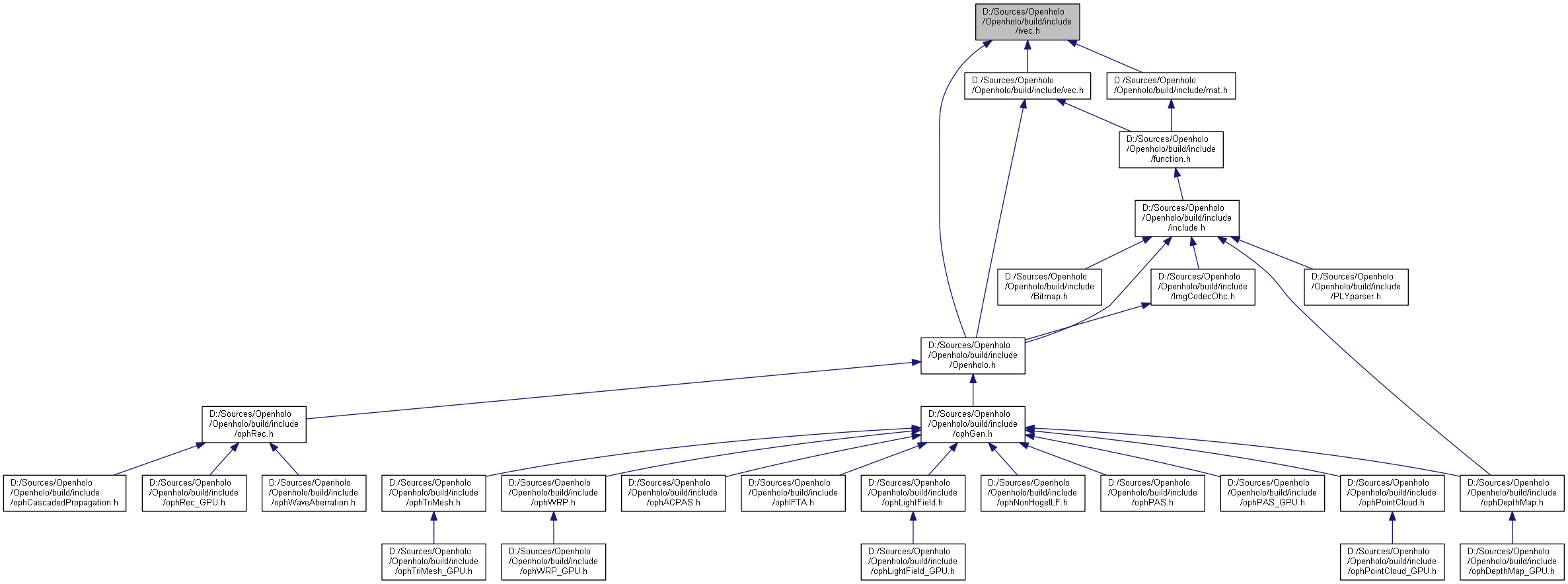|
| ivec2 | oph::operator+ (const ivec2 &a, const ivec2 &b) |
| |
| ivec2 | oph::operator+ (int a, const ivec2 &b) |
| |
| ivec2 | oph::operator+ (const ivec2 &a, int b) |
| |
| ivec2 | oph::operator- (const ivec2 &a, const ivec2 &b) |
| |
| ivec2 | oph::operator- (int a, const ivec2 &b) |
| |
| ivec2 | oph::operator- (const ivec2 &a, int b) |
| |
| ivec2 | oph::operator* (const ivec2 &a, const ivec2 &b) |
| |
| ivec2 | oph::operator* (int a, const ivec2 &b) |
| |
| ivec2 | oph::operator* (const ivec2 &a, int b) |
| |
| ivec2 | oph::operator+= (ivec2 &a, const ivec2 &b) |
| |
| ivec2 | oph::operator+= (ivec2 &a, int b) |
| |
| ivec2 | oph::operator-= (ivec2 &a, const ivec2 &b) |
| |
| ivec2 | oph::operator-= (ivec2 &a, int b) |
| |
| ivec2 | oph::operator*= (ivec2 &a, const ivec2 &b) |
| |
| ivec2 | oph::operator*= (ivec2 &a, int b) |
| |
| int | oph::operator== (const ivec2 &a, const ivec2 &b) |
| |
| int | oph::operator== (int a, const ivec2 &b) |
| |
| int | oph::operator== (const ivec2 &a, int b) |
| |
| int | oph::operator< (const ivec2 &a, const ivec2 &b) |
| |
| int | oph::operator< (int a, const ivec2 &b) |
| |
| int | oph::operator< (const ivec2 &a, int b) |
| |
| int | oph::operator<= (const ivec2 &a, const ivec2 &b) |
| |
| int | oph::operator<= (int a, const ivec2 &b) |
| |
| int | oph::operator<= (const ivec2 &a, int b) |
| |
| int | oph::operator> (const ivec2 &a, const ivec2 &b) |
| |
| int | oph::operator> (int a, const ivec2 &b) |
| |
| int | oph::operator> (const ivec2 &a, int b) |
| |
| int | oph::operator>= (const ivec2 &a, const ivec2 &b) |
| |
| int | oph::operator>= (int a, const ivec2 &b) |
| |
| int | oph::operator>= (const ivec2 &a, int b) |
| |
| int | oph::operator!= (const ivec2 &a, const ivec2 &b) |
| |
| ivec2 | oph::operator- (const ivec2 &a) |
| |
| ivec3 | oph::operator+ (const ivec3 &a, const ivec3 &b) |
| |
| ivec3 | oph::operator+ (int a, const ivec3 &b) |
| |
| ivec3 | oph::operator+ (const ivec3 &a, int b) |
| |
| ivec3 | oph::operator- (const ivec3 &a, const ivec3 &b) |
| |
| ivec3 | oph::operator- (int a, const ivec3 &b) |
| |
| ivec3 | oph::operator- (const ivec3 &a, int b) |
| |
| ivec3 | oph::operator* (const ivec3 &a, const ivec3 &b) |
| |
| ivec3 | oph::operator* (int a, const ivec3 &b) |
| |
| ivec3 | oph::operator* (const ivec3 &a, int b) |
| |
| ivec3 | oph::operator+= (ivec3 &a, const ivec3 &b) |
| |
| ivec3 | oph::operator+= (ivec3 &a, int b) |
| |
| ivec3 | oph::operator-= (ivec3 &a, const ivec3 &b) |
| |
| ivec3 | oph::operator-= (ivec3 &a, int b) |
| |
| ivec3 | oph::operator*= (ivec3 &a, const ivec3 &b) |
| |
| ivec3 | oph::operator*= (ivec3 &a, int b) |
| |
| int | oph::operator== (const ivec3 &a, const ivec3 &b) |
| |
| int | oph::operator== (int a, const ivec3 &b) |
| |
| int | oph::operator== (const ivec3 &a, int b) |
| |
| int | oph::operator< (const ivec3 &a, const ivec3 &b) |
| |
| int | oph::operator< (int a, const ivec3 &b) |
| |
| int | oph::operator< (const ivec3 &a, int b) |
| |
| int | oph::operator<= (const ivec3 &a, const ivec3 &b) |
| |
| int | oph::operator<= (int a, const ivec3 &b) |
| |
| int | oph::operator<= (const ivec3 &a, int b) |
| |
| int | oph::operator> (const ivec3 &a, const ivec3 &b) |
| |
| int | oph::operator> (int a, const ivec3 &b) |
| |
| int | oph::operator> (const ivec3 &a, int b) |
| |
| int | oph::operator>= (const ivec3 &a, const ivec3 &b) |
| |
| int | oph::operator>= (int a, const ivec3 &b) |
| |
| int | oph::operator>= (const ivec3 &a, int b) |
| |
| int | oph::operator!= (const ivec3 &a, const ivec3 &b) |
| |
| ivec3 | oph::operator- (const ivec3 &a) |
| |
| ivec4 | oph::operator+ (const ivec4 &a, const ivec4 &b) |
| |
| ivec4 | oph::operator+ (int a, const ivec4 &b) |
| |
| ivec4 | oph::operator+ (const ivec4 &a, int b) |
| |
| ivec4 | oph::operator- (const ivec4 &a, const ivec4 &b) |
| |
| ivec4 | oph::operator- (int a, const ivec4 &b) |
| |
| ivec4 | oph::operator- (const ivec4 &a, int b) |
| |
| ivec4 | oph::operator* (const ivec4 &a, const ivec4 &b) |
| |
| ivec4 | oph::operator* (int a, const ivec4 &b) |
| |
| ivec4 | oph::operator* (const ivec4 &a, int b) |
| |
| ivec4 | oph::operator+= (ivec4 &a, const ivec4 &b) |
| |
| ivec4 | oph::operator+= (ivec4 &a, int b) |
| |
| ivec4 | oph::operator-= (ivec4 &a, const ivec4 &b) |
| |
| ivec4 | oph::operator-= (ivec4 &a, int b) |
| |
| ivec4 | oph::operator*= (ivec4 &a, const ivec4 &b) |
| |
| ivec4 | oph::operator*= (ivec4 &a, int b) |
| |
| int | oph::operator== (const ivec4 &a, const ivec4 &b) |
| |
| int | oph::operator== (int a, const ivec4 &b) |
| |
| int | oph::operator== (const ivec4 &a, int b) |
| |
| int | oph::operator< (const ivec4 &a, const ivec4 &b) |
| |
| int | oph::operator< (int a, const ivec4 &b) |
| |
| int | oph::operator< (const ivec4 &a, int b) |
| |
| int | oph::operator<= (const ivec4 &a, const ivec4 &b) |
| |
| int | oph::operator<= (int a, const ivec4 &b) |
| |
| int | oph::operator<= (const ivec4 &a, int b) |
| |
| int | oph::operator> (const ivec4 &a, const ivec4 &b) |
| |
| int | oph::operator> (int a, const ivec4 &b) |
| |
| int | oph::operator> (const ivec4 &a, int b) |
| |
| int | oph::operator>= (const ivec4 &a, const ivec4 &b) |
| |
| int | oph::operator!= (const ivec4 &a, const ivec4 &b) |
| |
| int | oph::operator>= (int a, const ivec4 &b) |
| |
| int | oph::operator>= (const ivec4 &a, int b) |
| |
| ivec4 | oph::operator- (const ivec4 &a) |
| |



